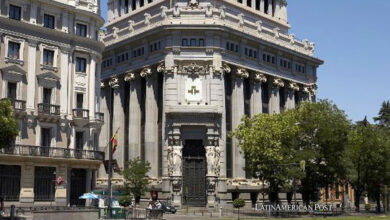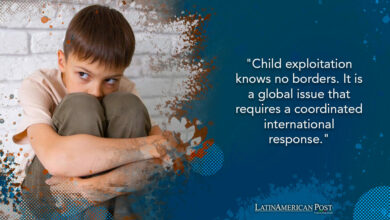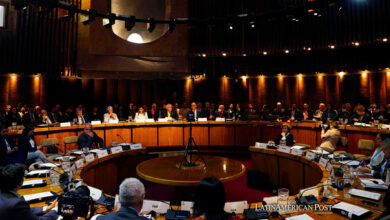Banishment, the Anachronistic Practice that Daniel Ortega is Employing
Nicaraguan President Daniel Ortega recently banished several opponents. An almost forgotten measure in the region is brought into the 21st century to chase politicians.

Photo: EFE
LatinAmerican Post | Santiago Gómez Hernández
Listen to this article
Leer en español: Destierro, la práctica anacrónica que Daniel Ortega está empleando
Last week, several media outlets reported the release of 222 political prisoners by the government of Daniel Ortega. Subsequently, it became known that the release, shipment to the United States and subsequent cancellation of nationality, was a political move used by the controversial Sandinista leader. This expulsion and subsequent cancellation of nationalities, leaving his opponents stateless, is a clear example of what is known as exile.
According to the UN Refugee Agency (UNHCR), banishment “refers to the penalty of expelling someone from a place or territory. Generally, it is the State that decides to expel, or banish, that person for having committed a crime. It can be temporarily or forever.
You may also be interested: The Mara Salvatrucha: Are they looking to settle in other regions of Latin America?
For example, in the great literary work of the Cid Campeador he lived in his own flesh what exile was, so common in those times when the text was written and so rarely seen today.
Banishment was a common practice in past centuries when leaders (mostly monarchs) sent criminals out of the central territory. In colonial times it was common to send prisoners to the colonies, such as Australia, North America or Guyana by the United Kingdom and France.
Despite the fact that today banishment has disappeared from several penal codes. However, there are similar punishments in many countries. For example,La Voz de Galicia explains that today the "deprival of the right to reside in certain places or go to them for a period of six months to three years" is used.
What is striking about what happened in Nicaragua is that Ortega executes this sanction against opposition politicians. Additionally, Ortega withdraws their citizenship, the exiles, which takes them out of the internal political scene for now and in the future.
However, this measure also ends up affecting a possible dialogue between Sandinismo and the opposition or the international community. What at first could be acclaimed for releasing political prisoners, ended up being simply a strategy that Ortega used to relieve internal pressure that he maintained with the detention of the 222 prisoners.
Most of these exiles are part of the massive arrests that Ortega carried out during the 2021 electoral period. During the presidential election period, the Nicaraguan authorities arrested 7 presidential hopefuls.
Despite the massive release, there are still 39 political prisoners, according to the Mechanism for the Recognition of Political Prisoners of Nicaragua. Among these is Rolando Álvarez, Bishop of Matagalpa.
According to EFE, the priest was sentenced to 26 years and was also stripped of his citizenship. However, Álvarez refused to be exiled and for this reason he was transferred from the place where he had house arrest and was transferred to prison.
What Comes for the Banished?
By losing their identity, Nicaraguan opponents are considered stateless. According to UNHCR, International Law defines a stateless person as "a person who is not considered a national by any State according to its legislation."
This measure was implemented by Ortega to prevent (or hinder) future returns to the country and future participation in internal politics.
Besides, although for now on, 95 of the opponents lose their Nicaraguan nationality, they can opt for other nationalities. Spain already offered all those expelled Spanish nationality.




